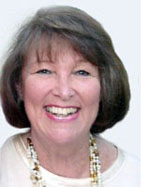By Cynthia Citron

ENCINO, California — If Ernest Hemingway saw Paris in the ‘20s as a movable feast, Woody Allen, nearly a century later, sees it as a great big bowl of jellybeans: colorful, sweet, and totally addicting.
From the first notes of jazz (can that be Allen playing jazz clarinet?) as backup to the mesmerizing montage of Paris street scenes shot by cinematographer Darius Khondji, Allen’s latest film, Midnight in Paris reveals itself as a delicious, larger-than-life, over-the-top visual and emotional treat.
Owen Wilson, he of the squishy nose, plays Gil, a wide-eyed and winsome screenwriter who aspires to be a novelist. Accompanying his devastatingly bitchy fiancee (Rachel McAdams) and her overbearing parents to Paris, he becomes enraptured by the mystique of the city and longs for what he considers its golden era: the vibrant art scene of the 1920s.
Picked up at midnight by a bunch of partygoers in an ancient taxi, he accompanies them to a raucous party where Cole Porter plays the piano and Scott and Zelda Fitzgerald befriend him. A dazzling series of cameos features nearly everyone who was anyone in that period: Picasso, Degas, Bunuel, the matador Belmonte, a flamboyant Dali, and, best of all, a hilarious Hemingway who literally parodies himself by delivering terse and pithy homilies that might possibly work if written, but certainly don’t as speech.
And then there’s Kathy Bates, who, as Gertrude Stein, sits beneath Picasso’s famous portrait as she mentors all who come to pay her homage. Though her conversation bears no hint of the inscrutable stream-of-consciousness that permeates Stein’s writing, Bates is wonderful and motherly, and even looks the part.
Midnight in Paris is an arts and literature junkie’s delight, with obscure references and insider comments that challenge your knowledge of the period, as when a beautiful woman talks about her disastrous affair with an “Italian-Jewish artist.” Modigliani, you say to yourself, just before Gil does.
As the story progresses, you wonder if Gil will succumb to the fantasy of Paris’ golden era and elect to stay there. And if Adriana (Marion Cotillard), his potential love interest, will relinquish her yearning for what she considers Paris’ golden age: the Belle Epoque of the 1890s.
Fanciful as it is, the message of Midnight in Paris is clear: yearning backwards is impractical, the past is inaccessible, and time travel isn’t a solution. You are where you are and you are when you are. If in the end all we have is Woody Allen’s Paris in the 21st century, that’s plenty good enough for me.
*
Citron is Los Angeles bureau chief for San Diego Jewish World. She may be contacted at cynthia.citron@sdjewishworld.com